Home>Home Maintenance>What Happens At Home Inspection
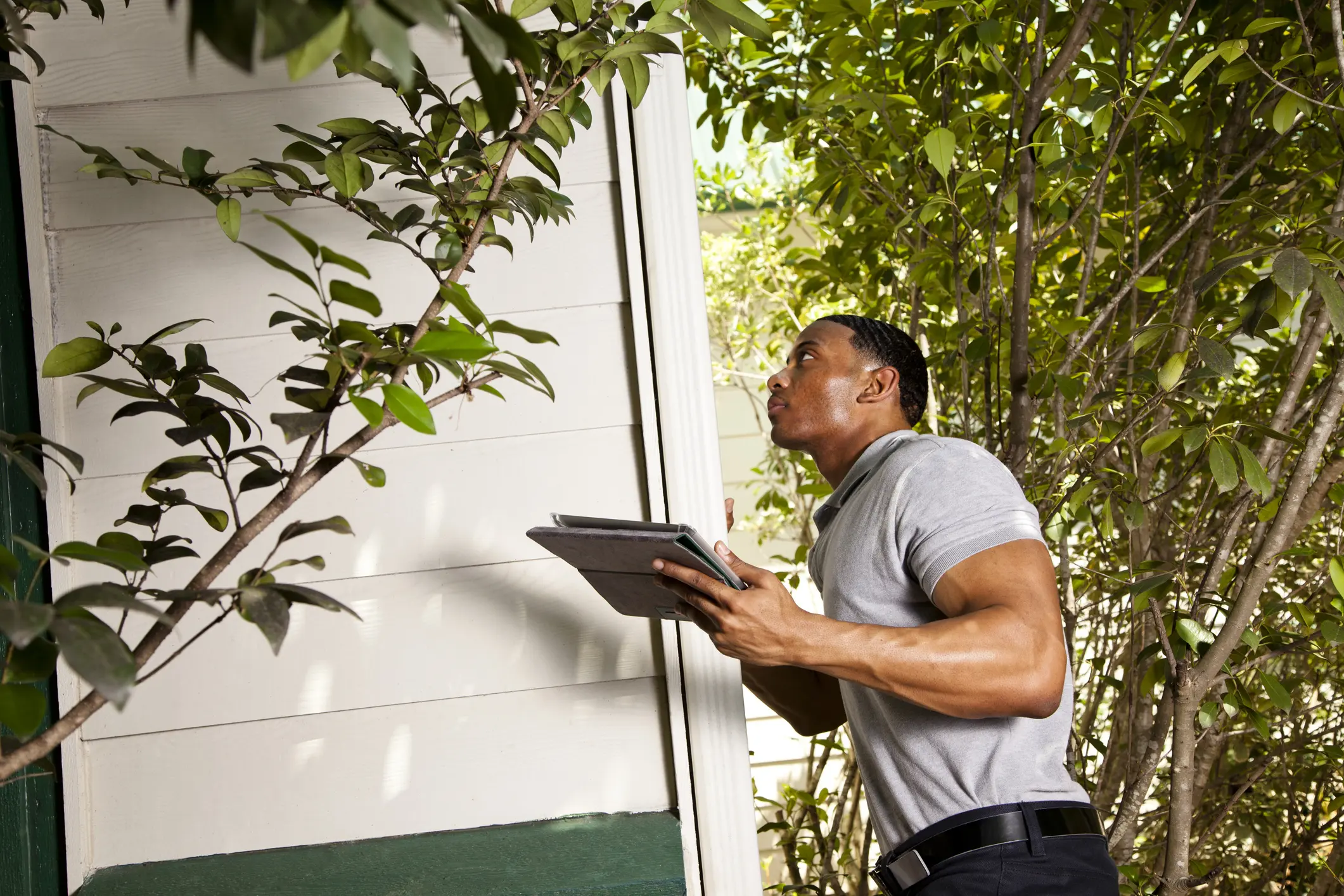

Home Maintenance
What Happens At Home Inspection
Modified: March 6, 2024
Learn the importance of home maintenance and discover what happens during a professional home inspection. Expert insights and tips for maintaining your home.
(Many of the links in this article redirect to a specific reviewed product. Your purchase of these products through affiliate links helps to generate commission for Storables.com, at no extra cost. Learn more)
Introduction
Welcome to the world of home inspections – a process that is crucial when buying or selling a home. Whether you’re a first-time homebuyer or a seasoned homeowner, understanding the ins and outs of a home inspection is essential for making informed decisions about your property. In this article, we’ll delve into the importance of home inspections, what to expect during an inspection, and how to prepare for this critical step in the home buying or selling process.
A home inspection is a comprehensive evaluation of a property’s condition, typically conducted by a qualified home inspector. It is designed to identify any potential issues or defects that may impact the safety, functionality, or value of a home. This inspection covers various aspects of the property, including the exterior, interior, roof and attic, plumbing and electrical systems, heating and cooling systems, and the overall structural integrity.
Why are home inspections so important, you may wonder? Well, for starters, a thorough home inspection can uncover hidden problems that may not be visible to the untrained eye. This helps buyers make informed decisions about the property they are interested in. Additionally, sellers can benefit from a pre-listing home inspection, which allows them to address any issues upfront and potentially increase the value of their home.
During a home inspection, the inspector will assess the condition of the property and provide a detailed report of their findings. This report offers valuable insights into the overall state of the home, highlighting any areas that require attention or repairs. Armed with this information, buyers can negotiate repairs or ask for a price reduction, while sellers can address necessary repairs before putting their home on the market.
Now that we understand the importance of home inspections, let’s take a closer look at what to expect during one. The process typically starts with scheduling an appointment with a qualified home inspector. This professional will visit the property and conduct a thorough examination of its various components. They will look for any signs of damage, wear and tear, faulty installations, or potential safety hazards.
Throughout the inspection, the home inspector will carefully examine both the exterior and interior of the property. They will assess the structural integrity, check for signs of water damage or leaks, inspect the electrical and plumbing systems, evaluate the roof and attic, and assess the heating and cooling systems. In some cases, additional tests and inspections, such as radon testing or termite inspections, may be recommended.
Key Takeaways:
- Home inspections are crucial for buyers and sellers, providing valuable insights into a property’s condition and helping prioritize necessary repairs or negotiations.
- Understanding the home inspection report is essential, as it offers valuable information about a property’s condition, prioritizes repairs, and provides recommendations for addressing any issues.
Importance of Home Inspections
Home inspections are a crucial step in the home buying or selling process. They provide valuable information about the condition of a property, helping buyers and sellers make informed decisions. Let’s explore why home inspections are so important:
- Identifying Issues: Home inspections reveal potential issues or defects that may not be apparent during a casual walk-through. From hidden water damage to faulty electrical wiring, a thorough inspection can uncover problems that could impact the safety, functionality, or value of the home.
- Prioritizing Repairs: By identifying issues upfront, home inspections help buyers prioritize repairs and renovations. It allows them to negotiate with sellers and potentially request repairs or price reductions, ensuring that they are well-informed about the property’s condition before making a purchase.
- Safety Concerns: Home inspections play a vital role in identifying safety hazards within a property. This includes issues like mold infestations, asbestos, radon, or faulty wiring. Having this knowledge allows buyers to address these concerns promptly and ensure the safety of their family.
- Predicting Future Costs: A home inspection report can provide invaluable insights into the long-term maintenance and repair needs of a property. This information helps buyers anticipate future expenses and plan accordingly, whether it’s for replacing an aging roof, upgrading outdated electrical systems, or addressing structural issues.
- Verifying Disclosures: In some cases, sellers may not be aware of certain issues within their own home. A home inspection acts as an unbiased verification of the property’s condition, giving buyers added peace of mind and ensuring that they are aware of any undisclosed problems.
- Assessing Investment Value: For real estate investors, home inspections are essential for assessing the investment value of a property. A thorough inspection allows investors to evaluate renovation or repair costs and determine if the property aligns with their financial goals.
- Promoting Transparency: Home inspections contribute to a transparent and fair transaction for both buyers and sellers. They provide an objective assessment of the property’s condition, reducing the risk of disputes or dissatisfaction after the sale.
Overall, home inspections serve as a critical step in the home buying or selling process. They provide valuable insights into a property’s condition, allowing buyers to make informed decisions and ensuring that sellers are aware of any potential issues. It is essential to choose a qualified and experienced home inspector to conduct a thorough examination and provide an accurate report.
What to Expect During a Home Inspection
Knowing what to expect during a home inspection can help alleviate any concerns or uncertainties you may have. Here is a breakdown of the typical process and what you can expect when a professional home inspector evaluates your property:
Scheduling and Preparing: Once you’ve found a qualified home inspector, you will schedule an appointment for the inspection. It’s essential to choose a reputable inspector with a solid track record in the industry. On the day of the inspection, make sure the home is easily accessible to the inspector, including access to the attic, basement, and any additional structures on the property.
Physical Examination: The home inspector will perform a comprehensive evaluation of the property’s exterior and interior. They will assess the structure of the home, including the foundation, walls, and ceilings. They will also examine the condition of doors, windows, and the overall exterior of the property.
Roof and Attic Evaluation: The inspector will inspect the roof for any signs of damage, such as missing shingles, leaks, or sagging areas. They will also evaluate the condition of the gutters and downspouts. In the attic, the inspector will check for proper insulation, ventilation, and any signs of water damage or pest infestation.
Plumbing and Electrical Systems: The home inspector will assess the plumbing system, checking for leaks, water pressure issues, and proper functioning of fixtures, such as sinks, showers, and toilets. They will also evaluate the electrical system, ensuring that it meets safety standards and that wiring is correctly installed.
Heating and Cooling Systems: The inspector will inspect the heating and cooling systems, including the furnace, air conditioner, and any additional HVAC equipment. They will test the functionality, check for proper ventilation, and identify any need for repairs or maintenance.
Interior Inspection: Inside the home, the inspector will examine the various components, including walls, ceilings, floors, and stairs. They will check for signs of water damage, mold, or structural issues. The inspector will also assess the condition of doors, windows, and any installed appliances, like dishwashers or ovens.
Additional Testing and Inspections: Depending on the property and region, the inspector may recommend additional tests or inspections. This can include radon testing, termite inspections, or checking for the presence of lead-based paint. These additional assessments may require specialized professionals.
Professional Report: After the inspection is complete, the home inspector will provide a detailed report outlining their findings. This report will include information about any issues discovered, including photographs or supporting documentation. It is essential to thoroughly review the report and consult with the inspector if you have any questions or concerns.
Keep in mind that a home inspection is not a pass or fail evaluation. Instead, it provides a comprehensive assessment of the property’s condition, allowing you to make informed decisions about repairs, negotiations, or further assessments. It is always recommended to attend the inspection personally to ask any questions and gain a better understanding of the property’s condition.
By knowing what to expect during a home inspection, you can be prepared and have a clearer understanding of the process. A professional home inspection provides peace of mind and ensures that you are well-informed about the property you are considering to buy or sell.
Exterior Inspection
The exterior of a home plays a crucial role in protecting the interior and maintaining the overall integrity of the property. During a home inspection, the exterior is thoroughly evaluated to identify any potential issues or areas of concern. Here’s what to expect during the exterior inspection:
Foundation: The home inspector will carefully examine the foundation of the property. They will look for any visible cracks, signs of settling, or water damage. A solid and stable foundation is essential for the structural integrity of the home.
Siding and Exterior Walls: The condition of the siding and exterior walls is crucial in protecting the home from the elements. The inspector will check for any signs of damage, such as cracks, rot, or peeling paint. They may also assess the quality of the insulation and ensure that it is installed correctly.
Windows and Doors: Properly functioning windows and doors are essential for energy efficiency and security. The inspector will assess the condition of the windows and doors, checking for any damage, gaps, or signs of improper installation. They will also ensure that they open and close smoothly.
Roof: The roof is one of the most critical components of a home. The inspector will carefully evaluate the roof’s condition, looking for any signs of damage, missing or loose shingles, or sagging areas. They may also inspect the flashing and gutters to ensure they are properly installed and functioning.
Drainage and Grading: Proper drainage is crucial to prevent water damage and foundation issues. The inspector will assess the grading around the home, ensuring that water flows away from the foundation. They will also check the functionality of the gutters and downspouts, ensuring that they are correctly directing water away from the property.
Decks, Patios, and Porches: If the property has any outdoor features like decks, patios, or porches, they will be evaluated for signs of damage or structural issues. The inspector will check for any rot, unstable railings, or loose boards that may pose a safety hazard.
Exterior Drainage Systems: The inspector will assess the functionality of the exterior drainage systems. This includes evaluating any installed French drains or sump pumps to ensure they are properly functioning and effectively preventing water intrusion into the basement or crawl space.
Outdoor Structures: If there are any additional structures on the property, such as sheds, garages, or fences, they will be examined for their overall condition and structural integrity. The inspector will check for signs of damage or deterioration and assess whether repairs or maintenance are necessary.
Overall Landscaping: While not directly related to the structure of the home, the inspector will take note of the landscaping and its impact on the property. They may identify any trees with branches too close to the home, potential erosion issues, or any other landscaping-related concerns.
It’s important to remember that a home inspection is a visual examination and does not involve destructive testing. The inspector will assess the exterior components for any visible issues or signs of potential problems. If they identify any significant concerns or recommend further assessment, they may advise you to consult with a specialist in that area.
A comprehensive exterior inspection provides valuable insights into the condition and maintenance needs of a home. By addressing any issues discovered during the inspection, you can ensure the long-term durability, safety, and functionality of the property.
Interior Inspection
The interior of a home is where we spend most of our time, so it’s crucial to ensure that it is safe, functional, and in good condition. During a home inspection, the interior of the property is carefully evaluated to identify any potential issues or areas of concern. Here’s what to expect during the interior inspection:
Walls, Ceilings, and Floors: The home inspector will examine the walls, ceilings, and floors of each room in the house. They will look for any signs of damage, such as cracks, water stains, or mold. The inspector may also check for unevenness or sagging in the floors.
Doors and Windows: Properly functioning doors and windows are essential for safety, security, and energy efficiency. The inspector will assess the condition of the doors and windows, checking for any damage, signs of wear, or improper installation. They will also ensure that they open and close smoothly.
Plumbing Fixtures: The inspector will evaluate the condition and functionality of plumbing fixtures, such as sinks, toilets, bathtubs, and showers. They will check for leaks, proper water flow, and any signs of water damage around the fixtures. The water pressure in different areas of the house may also be tested.
Electrical Systems: The electrical system is a crucial component of a home. The inspector will assess the condition of the electrical outlets, wiring, and circuit breaker panel. They will check for any signs of faulty wiring, exposed cables, or overloaded circuits. Additionally, they may test some outlets to ensure proper operation.
Heating and Cooling Systems: The inspector will evaluate the heating and cooling systems in the house, including the furnace, air conditioner, and any other HVAC equipment. They will check for proper operation, assess the age and condition of the systems, and ensure that they are adequately sized for the home.
Appliances: If the house includes any appliances, such as stoves, refrigerators, dishwashers, or laundry machines, the inspector will assess their condition and functionality. They may check for leaks, proper operation, and any signs of wear or damage.
Fireplaces and Chimneys: If the property has a fireplace, the inspector will evaluate its condition and ensure that it is functioning correctly. They will inspect the chimney for any signs of damage or deteriorated components, such as the flue or chimney cap.
Basement and Attic: The inspector will thoroughly examine the basement and attic, if accessible. They will check for signs of water damage, proper insulation, ventilation, and structural issues. The inspector may also assess the presence of any pests or signs of mold.
Overall Safety: Throughout the interior inspection, the inspector will focus on identifying any safety hazards. This includes checking for trip hazards, loose handrails, exposed electrical wires, or other potential dangers. They will ensure that the property meets safety standards and building codes.
It’s important to note that the inspector will assess the interior components visually and won’t perform any invasive or destructive testing. If they identify any significant concerns or recommend further assessment, they may advise consulting with a specialist in that area.
By thoroughly evaluating the interior of the property, the home inspector provides valuable insights into the condition and functionality of these essential living spaces. Addressing any issues discovered during the inspection allows for the necessary repairs or maintenance to ensure a safe, comfortable, and functional home for years to come.
Read more: What Happens If You Waive A Home Inspection
Roof and Attic Inspection
The roof and attic are critical components of a home, protecting it from the elements and ensuring the structural integrity of the property. During a home inspection, the roof and attic are thoroughly examined to identify any issues or areas of concern. Here’s what to expect during a roof and attic inspection:
Roof Evaluation: The home inspector will assess the condition of the roof, looking for any signs of damage, wear, or potential issues. They will examine the roof surface, including the shingles, tiles, or other roofing material, checking for any missing, cracked, or loose pieces. The inspector may also look for signs of moss or algae growth, which can indicate poor drainage or excess moisture.
Flashing and Chimney: The inspector will inspect the flashing, which is the material used to seal and protect the roof in areas where it meets structures such as chimneys, skylights, or vents. They will ensure that the flashing is properly installed, intact, and effectively preventing water intrusion. The chimney will also be evaluated for any signs of damage or deteriorated components.
Gutters and Downspouts: Properly functioning gutters and downspouts are essential for directing water away from the roof and foundation. The inspector will examine the gutters for any signs of clogging, damage, or improper installation. They will check that the downspouts are securely attached and effectively carrying water away from the home.
Attic Inspection: The inspector will access the attic, if available, to assess its condition and functionality. They will inspect the insulation, ensuring that it meets the recommended standards for energy efficiency and is properly installed. The inspector will also check for any signs of water penetration or leaks, which could indicate roof or flashing issues. Ventilation in the attic will be evaluated to ensure proper airflow and to prevent moisture buildup.
Structural Assessment: While in the attic, the inspector will also assess the structural components, including rafters, trusses, and support beams. They will look for signs of damage, such as sagging or compromised structural elements. Any issues identified can be indicative of roof problems or potential structural concerns that need further evaluation.
Insulation and Energy Efficiency: A properly insulated attic is essential for maintaining a comfortable indoor climate and reducing energy costs. The inspector will evaluate the insulation material, thickness, and coverage, ensuring it meets recommended standards. They may also inspect for proper ventilation to prevent moisture buildup and extend the lifespan of the roof.
Overall Safety: Throughout the roof and attic inspection, the inspector will prioritize safety. They will look for any signs of potential hazards, such as exposed wiring, inadequate structural support, or improperly installed insulation. The inspector will ensure that the roof and attic meet safety standards and pose no immediate safety risks.
It’s important to note that a home inspection provides a visual examination of the roof and attic. If the inspector identifies any significant concerns or recommends further assessment, they may suggest consulting with a roofing specialist or structural engineer to conduct a more in-depth evaluation.
A thorough roof and attic inspection allows buyers and sellers to have a comprehensive understanding of the condition and functionality of these crucial components. Identifying any issues or necessary repairs during the inspection ensures the long-term durability and protection of the property.
Plumbing and Electrical Systems Inspection
The plumbing and electrical systems of a home are essential for its daily functioning and safety. During a home inspection, these systems are thoroughly evaluated to identify any potential issues or areas of concern. Here’s what to expect during a plumbing and electrical systems inspection:
Plumbing System: The home inspector will assess the plumbing system, including supply pipes, drain lines, fixtures, and water heaters. They will check for leaks, proper water pressure, and functionality of fixtures such as sinks, toilets, showers, and bathtubs. The inspector will also evaluate the condition of pipes for any signs of corrosion, blockages, or inadequate insulation.
Water Supply: The inspector will assess the main water supply line, ensuring it is properly connected and functioning. They may test water flow to check for any issues or restrictions. Additionally, they will inspect visible water shut-off valves to ensure they are easily accessible and in good condition.
Drainage Systems: The drainage system is just as important as the water supply. The inspector will evaluate the condition of drain lines, including sinks, toilets, bathtubs, and showers. They will look for signs of clogs, leaks, or slow drainage. The septic system, if applicable, may also be inspected for proper operation and any signs of issues.
Water Heating System: If the property has a water heater, it will be inspected for proper installation, condition, and functionality. The inspector will assess factors such as age, capacity, and safety features. They will also check for any signs of leaks or potential hazards associated with the water heater.
Electrical System: The home inspector will evaluate the electrical system to ensure it meets safety standards and is properly installed. They will assess the main electrical panel, checking for any signs of wear, outdated components, or potential fire hazards. The inspector will also test a sampling of outlets throughout the property to ensure proper wiring and to identify any underlying issues.
Lighting and Fixtures: The inspector will examine the lighting and fixtures throughout the home. They will check for proper operation, ensuring that light switches, outlets, and fixtures are functioning correctly. The inspector may also look for any potential safety concerns, such as exposed wiring or fixtures that are not properly secured.
GFCI and AFCI Outlets: Ground Fault Circuit Interrupter (GFCI) outlets and Arc Fault Circuit Interrupter (AFCI) outlets are crucial for safety in areas prone to water exposure or with sensitive electronic equipment. The inspector will test these outlets to verify their proper operation and installation in areas such as kitchens, bathrooms, and garages.
Smoke and Carbon Monoxide Detectors: The inspector will check the presence and functionality of smoke detectors and carbon monoxide detectors throughout the property. They will ensure they are properly installed and in working condition, providing the necessary level of safety for the occupants.
It’s important to note that a home inspection provides a visual examination of the plumbing and electrical systems. If the inspector identifies any significant concerns or recommends further assessment, they may suggest consulting with plumbing or electrical specialists to conduct more in-depth evaluations.
A thorough plumbing and electrical systems inspection allows buyers and sellers to have a comprehensive understanding of the condition and functionality of these critical systems. Identifying any issues or necessary repairs during the inspection ensures the safety and proper functioning of these systems in the home.
Heating and Cooling Systems Inspection
Heating and cooling systems are vital for maintaining a comfortable and livable environment in a home. During a home inspection, these systems are thoroughly evaluated to identify any potential issues or areas of concern. Here’s what to expect during a heating and cooling systems inspection:
Furnace: The home inspector will assess the condition and functionality of the furnace. They will check for any signs of wear, damage, or corrosion on the furnace components. The inspector will also verify that the furnace is properly sized for the home and that the flue or chimney is in good condition and operating safely.
Air Conditioning: If the property has an air conditioning system, the inspector will evaluate its condition and functionality. They will check for proper operation and cooling capacity. The inspector will also assess the various components, such as the compressor, condenser, and evaporator, for any signs of damage or wear.
Ductwork and Vents: The inspector will assess the condition of the ductwork and vents, ensuring they are clean, properly insulated, and free of leaks or obstructions. Proper airflow throughout the home is essential for effective heating and cooling.
Thermostat: The inspector will verify the functionality and accuracy of the thermostat. They will ensure that it is properly calibrated and responsive to temperature changes, allowing for efficient control of the heating and cooling systems.
Auxiliary Heating Systems: If the property has additional heating systems, such as a fireplace, wood stove, or radiant floor heating, the inspector will evaluate their condition and functionality. They will check for any signs of damage, proper installation, and ventilation.
Ventilation: Proper ventilation is crucial for maintaining indoor air quality and preventing issues like mold or excess humidity. The inspector will assess the ventilation systems, including exhaust fans in bathrooms and kitchens, to ensure they are properly functioning.
Energy Efficiency: The inspector will evaluate the overall energy efficiency of the heating and cooling systems. They may check for insulation levels, seal gaps, or recommend energy-saving measures that can improve the efficiency of these systems.
Safety: Throughout the inspection, the inspector will prioritize safety. They will check for any potential hazards, such as exposed wires, improperly installed equipment, or blocked vents. The safety of the heating and cooling systems is essential to protect both the occupants and the property.
It’s important to note that a home inspection provides a visual examination of the heating and cooling systems. If the inspector identifies any significant concerns or recommends further assessment, they may suggest consulting with HVAC specialists to conduct more in-depth evaluations.
A thorough heating and cooling systems inspection allows buyers and sellers to have a comprehensive understanding of the condition and functionality of these crucial systems. Identifying any issues or necessary repairs during the inspection ensures the comfort, efficiency, and safety of the home’s heating and cooling systems.
Tip: Before a home inspection, make sure to declutter and clean your home, repair any visible issues, and gather important documents for the inspector. This will help the inspection process go smoothly and increase the chances of a favorable report.
Structural Inspection
A structural inspection is a critical component of a comprehensive home inspection. It focuses on the overall stability and integrity of a property’s structure, including its foundation, walls, and support systems. Here’s what to expect during a structural inspection:
Foundation: The home inspector will carefully assess the foundation of the property. They will look for any visible cracks, settling, or signs of moisture intrusion that could compromise its structural integrity. The inspector may also evaluate the foundation material, such as poured concrete, block, or stone.
Walls and Load-Bearing Elements: The inspector will evaluate the condition of the walls, both interior and exterior, paying close attention to any signs of damage, bowing, or bulging. They will also identify load-bearing walls and structural elements that support the weight of the property, ensuring they are sound and free of problems.
Framing and Structural Components: The inspector will assess the framing and structural components of the property, including beams, columns, roof trusses, and floor joists. They will check for signs of structural damage, inadequate support, or compromised integrity. Attention will be given to any visible signs of sagging, excessive movement, or improper construction.
Windows and Doors: The inspector will evaluate the installation and condition of windows and doors throughout the property. They will ensure that they are square, properly anchored, and not causing any structural issues. The inspector will also check for signs of water damage or air leakage around windows and doors.
Exterior Surfaces: The inspector will examine the exterior surfaces of the property, including siding, brickwork, or stucco, looking for signs of cracking, deteriorated materials, or inadequate installation. These issues could impact the structural integrity of the property by allowing moisture intrusion or compromising the overall stability.
Roof Structure: The inspector will assess the roof structure, including trusses, rafters, and any supporting elements. They will check for signs of damage, such as sagging or bowing, as well as the overall condition of the roof components. The inspector will also evaluate the ventilation of the attic, which has an impact on the overall health of the roof structure.
Crawl Spaces and Basements: If accessible, the inspector will examine crawl spaces and basements. They will assess the condition of the foundation, support columns, and flooring. The inspector will also look for signs of dampness, water intrusion, or issues with humidity levels that could lead to structural damage or mold growth.
Overall Structural Soundness: Throughout the inspection, the inspector will evaluate the overall structural soundness of the property. They will consider all the components mentioned above and look for any indications of past or ongoing structural problems. The inspector will pay attention to the quality of construction, signs of inadequate repairs, or any evidence of prior structural issues.
It’s important to note that a home inspection provides a visual examination of the property’s structure, focusing on visible signs of issues. If the inspector identifies any significant concerns or recommends further evaluation, they may suggest consulting with structural engineers or specialists who can conduct more in-depth assessments.
A thorough structural inspection provides invaluable insights into the stability and integrity of a property. Identifying any structural issues during the inspection allows for necessary repairs or further assessment by qualified professionals, ensuring the long-term safety and durability of the home.
Read more: What Happens When A Dryer Vent Is Blocked
Additional Testing and Inspections
In addition to the standard components of a home inspection, there are several additional testing and inspections that may be recommended to gain a more comprehensive understanding of a property’s condition. These additional assessments focus on specific areas or concerns and often require specialized professionals. Here are some common types of additional testing and inspections that may be suggested during a home inspection:
Radon Testing: Radon is a colorless, odorless gas that can be found in the soil and pose health risks when present in high concentrations. A radon test measures the level of radon gas in the home. The test involves placing monitoring devices in the property for a specific period, typically 48 to 72 hours. If radon levels are found to be high, mitigation steps can be taken to reduce exposure.
Termite Inspection: Termites can cause significant damage to the structure of a home. A termite inspection involves a thorough examination of the property for any signs of termite activity or damage. This inspection is typically performed by a licensed pest control professional who will assess the property using specialized tools and knowledge of termite behavior.
Mold Inspection: Mold growth can lead to health issues and indicate underlying moisture problems within a property. A mold inspection involves identifying areas of mold growth, assessing the extent of the issue, and determining the cause. This inspection is typically performed by an environmental specialist who will collect samples for laboratory analysis to identify the type and concentration of mold present.
Lead-Based Paint Inspection: For older homes, especially those built before 1978, lead-based paint may be a concern. A lead-based paint inspection involves testing paint samples from various surfaces in the home to determine their lead content. This inspection is typically conducted by a certified professional who will assess the risk of lead exposure and provide recommendations for mitigation if necessary.
Asbestos Testing: Asbestos is a hazardous material that was commonly used in building construction until the late 1970s. Asbestos testing involves collecting samples from various materials, such as insulation, flooring, or pipe wrapping, to determine if they contain asbestos fibers. This testing should be conducted by a licensed asbestos professional, and if asbestos is present, proper remediation steps should be taken to ensure safety.
Septic System Inspection: Properties with septic systems should undergo a specialized septic system inspection. This involves assessing the overall condition of the system, including the tank, drain field, and associated components. The inspector will determine if the system is functioning properly and ensure compliance with local regulations.
Well Water Testing: If the property has a private well as the water source, well water testing is essential to check for the presence of harmful contaminants. Testing may include analyzing the water for bacteria, nitrates, lead, or other substances that may pose health risks. The water samples are typically sent to a certified laboratory for analysis.
These additional testing and inspections serve to provide a more comprehensive assessment of specific areas or concerns within a property. Depending on the location, age, and specific characteristics of the home, different types of additional testing or inspections may be recommended. It’s important to consult with your home inspector and consider their recommendations in order to ensure a more thorough understanding of the property’s condition.
Remember, these additional testing and inspections are typically separate from the standard home inspection and may involve additional costs and specialized professionals. However, the insights gained from these assessments can be invaluable in making informed decisions about the property and addressing any specific concerns or risks.
Common Issues Found During Home Inspections
A home inspection is designed to identify any potential issues or defects in a property. While every inspection is unique, there are some common issues that tend to be found during home inspections. Being aware of these issues can help buyers and sellers understand what to expect and take appropriate actions. Here are some of the most common issues uncovered during home inspections:
Roofing Problems: Roof issues are frequently detected during home inspections. These can include missing or damaged shingles, leaks, improper flashing, or signs of poor maintenance. Roof repairs or replacements can be costly, so it’s important to address these issues promptly to prevent further damage and potential water intrusion.
Plumbing Leaks and Water Damage: Plumbing leaks are common findings during home inspections. This includes leaking faucets, pipes, or fixtures. Inspectors may also identify water stains, mold growth, or signs of previous water damage. It’s important to address plumbing issues promptly to prevent further damage, potential health hazards, and increased water bills.
Electrical System Problems: Home inspectors often identify electrical issues, such as outdated wiring, improper or DIY electrical work, insufficient grounding, or overloaded circuits. These issues can pose fire hazards or increase the risk of electrical shocks. Repairs or upgrades may be necessary to ensure the safety and functionality of the electrical system.
HVAC System Deficiencies: Heating, ventilation, and air conditioning (HVAC) systems are frequently inspected, and issues can range from dirty filters, improper installation, inadequate maintenance, or malfunctioning components. These problems can affect energy efficiency, indoor air quality, and overall comfort. HVAC repairs or replacements may be needed to ensure optimal performance.
Moisture and Water Intrusion: Home inspectors often detect signs of moisture or water intrusion, which can lead to mold growth, structural damage, or even health hazards. Issues can arise from leaky roofs, plumbing leaks, improper grading or drainage, or insufficient ventilation. Addressing moisture issues promptly is crucial to prevent further damage and potential health risks.
Foundation or Structural Problems: Inspectors may identify foundation cracks, sagging or bowing walls, uneven floors, or signs of settlement. These issues can indicate underlying structural problems that require further evaluation by a structural engineer or specialist. It’s important to address any structural concerns promptly to prevent worsening damage or structural instability.
Crawl Space or Attic Issues: Inspectors often uncover issues in crawl spaces or attics, such as inadequate insulation, improper ventilation, pest infestations, or mold growth. These areas are prone to moisture problems, which can lead to various issues. Proper insulation, ventilation, and addressing any pest or mold issues are necessary to maintain a healthy home environment.
Safety Hazards: Inspectors focus on identifying safety hazards, such as faulty or outdated electrical systems, missing or malfunctioning smoke detectors, insufficient handrails or guardrails, or trip hazards. These hazards can pose risks to occupants and may need immediate attention for the safety of those living in the home.
General Maintenance and Deferred Repairs: Home inspections often uncover general maintenance issues or deferred repairs that may have been overlooked by homeowners. These can include peeling paint, rotting wood, loose or damaged siding, or weathered exterior surfaces. These issues should be addressed to prevent further deterioration and maintain the overall condition of the property.
It’s important to note that each home inspection is unique, and the issues found depend on the specific condition of the property. While it’s common to find some issues during inspections, it doesn’t necessarily mean the property is in poor condition. The purpose of the inspection is to provide an accurate assessment that allows buyers and sellers to make informed decisions about the property.
Upon receiving the inspection report, it’s essential for buyers and sellers to consult with their real estate agent and appropriate professionals to determine the severity of the issues and decide on the necessary actions. Addressing any identified issues promptly can help ensure a safe and well-maintained home for years to come.
Who Conducts Home Inspections
Home inspections are typically performed by qualified and trained professionals known as home inspectors. These individuals have the expertise and knowledge to assess the condition of a property and identify any potential issues or defects. Let’s take a closer look at who conducts home inspections:
Home Inspectors: Home inspectors are professionals who specialize in assessing the condition of residential properties. They are typically licensed or certified in their respective jurisdictions and have undergone training and education to develop the necessary skills. Home inspectors are knowledgeable about building systems, components, and potential problem areas.
Qualifications and Training: The qualifications and training requirements for home inspectors may vary depending on the region and specific licensing or certification requirements. Many home inspectors have backgrounds in construction, engineering, or related fields, which provide them with a solid understanding of building systems and construction practices. They often undergo regular continuing education to stay up to date with industry standards and best practices.
Professional Associations: Home inspectors may also be members of professional associations, such as the American Society of Home Inspectors (ASHI), the International Association of Certified Home Inspectors (InterNACHI), or the National Association of Home Inspectors (NAHI). These associations often have their own membership and certification requirements, and being a member demonstrates a commitment to professionalism and ongoing education.
Independence and Objectivity: Home inspectors are typically independent professionals who work directly for the client, whether the buyer or the seller. They should provide an unbiased assessment of the property’s condition, adhering to a code of ethics that prioritizes honesty, integrity, and professionalism. This independence ensures that the inspector’s assessments are impartial and free from any conflicts of interest.
Scope of Inspection: The scope of a home inspection can vary based on the specific needs of the client and the standards set by the relevant industry associations or licensing authorities. However, a standard home inspection usually covers the major systems and components of a property, including the structure, exterior, plumbing, electrical, heating and cooling, interior, and roofing.
Hiring a Home Inspector: When hiring a home inspector, it’s important to select a reputable professional with a proven track record and positive reviews. Real estate agents can often recommend trusted home inspectors with whom they have worked in the past. It’s also advisable to interview potential inspectors and ask about their experience, qualifications, and approach to inspections.
Interacting with Home Inspectors: Buyers and sellers are typically encouraged to attend the home inspection to gain firsthand knowledge of any issues discovered. This provides an opportunity to ask questions, seek clarification, and understand the implications of any identified problems. The home inspector will typically provide a detailed report outlining their findings, allowing buyers and sellers to make informed decisions about the property.
In summary, home inspections are conducted by qualified and trained professionals known as home inspectors. They play a crucial role in assessing the condition of a property and identifying any potential issues or defects. By hiring a reputable and experienced home inspector, buyers and sellers can gain valuable insights into the property’s condition and make informed decisions about their real estate transactions.
How to Prepare for a Home Inspection
A home inspection is a crucial step in the home buying or selling process. It provides valuable information about the condition of a property and helps buyers and sellers make informed decisions. To ensure a smooth and successful inspection, it’s important to be prepared. Here are some tips on how to prepare for a home inspection:
1. Clean and Declutter: Before the inspection, make sure the property is clean and decluttered. Clear any personal belongings or clutter from areas such as the basement, attic, and electrical panel. This allows the inspector to access these areas easily and ensures a thorough examination of the property.
2. Provide Access: Make sure all areas of the property, including exterior structures, basements, crawlspaces, attics, and utility rooms, are easily accessible for the inspector. Unlock any gates or doors, remove any obstacles, and ensure that pets are safely secured or taken off the property during the inspection.
3. Compile Documentation: Gather and organize any documentation related to the property, including permits, renovation records, and warranties for appliances or major systems. Providing these documents to the inspector can offer valuable insights into the maintenance and history of the property.
4. Make Repairs as Necessary: Address any known issues or repairs before the inspection. Fixing minor issues, such as leaky faucets or loose handrails, shows that the property has been well-maintained and can help make a positive impression on the inspector. It also reduces the chances of potential concerns being identified during the inspection.
5. Ensure All Utilities are On: Make sure all utilities, including water, electricity, and gas, are turned on and functioning properly. This allows the inspector to assess the various systems and components that rely on these utilities. Check that pilot lights are lit, replace any burned-out light bulbs, and ensure that all systems are operational.
6. Provide Keys and Access Codes: If the property has any locked areas or electronic access codes, provide the necessary keys or codes to the inspector. This includes keys for electrical panels, sheds, garages, or gated areas. Ensuring that the inspector has access to these areas allows for a comprehensive inspection.
7. Plan for Sufficient Time: Home inspections can take several hours, depending on the size and complexity of the property. Plan accordingly and allow ample time for the inspector to perform a thorough examination. This ensures that the inspector can conduct a detailed inspection without feeling rushed.
8. Take Notes and Ask Questions: Attend the inspection and take notes of any observations or concerns you have. This is an opportunity to learn about the property and gain insights from the inspector’s expertise. Don’t hesitate to ask questions during the inspection to clarify any issues or gain a better understanding of the inspector’s findings.
9. Prepare for the Weather: Be aware of the weather conditions during the inspection. If it’s raining, ensure that outdoor areas are still accessible, and consider providing mats or booties for the inspector to avoid tracking dirt or mud into the property. Likewise, in extreme heat or cold, ensure that there is a comfortable environment for the inspector to perform the inspection.
10. Maintain a Positive Attitude: Remember that a home inspection is not a pass or fail assessment. It is an opportunity to gain knowledge about the property’s condition and address any concerns. Approach the inspection with a positive mindset, and consider the results as valuable information for making informed decisions.
By following these tips on how to prepare for a home inspection, you can help ensure a smooth and successful process. Adequate preparation allows the inspector to conduct a thorough examination, provides valuable insights about the property, and helps buyers and sellers make informed decisions.
Read more: What Happens If A Dryer Vent Falls Off
Understanding the Home Inspection Report
After a home inspection is completed, a detailed report is provided by the home inspector. This report contains valuable information about the condition of the property, identifying any issues or concerns that were found during the inspection. Understanding the home inspection report is essential for buyers and sellers to make informed decisions. Here’s a breakdown of how to interpret and understand the contents of a home inspection report:
1. General Information: The report typically starts with general information, such as the property address, client information, and the date of the inspection. This section provides the basic details about the inspection and serves as a reference for the report.
2. Summary of Findings: The summary section provides an overview of the major findings and issues discovered during the inspection. It highlights any significant concerns that need immediate attention. This section allows both buyers and sellers to quickly grasp the overall condition of the property.
3. Detailed Analysis by Area: The report typically includes a breakdown of the property by specific areas, such as the exterior, interior, roof, plumbing, electrical, heating and cooling systems, and other major components. Each area is thoroughly evaluated, and the findings are documented. This section not only lists any issues but also provides descriptive details and recommendations for addressing them.
4. Clear and Concise Descriptions: The report should provide clear and concise descriptions of the findings. It should clearly indicate the location of the issue and provide details about the observed problem. Home inspectors often include photographs or diagrams to illustrate their findings, which can be helpful in understanding the extent of the issue.
5. Prioritization of Repairs: The report may prioritize the identified issues based on their severity or urgency. Some reports use a system of categorization, such as labeling items as high-priority, medium-priority, or low-priority. This prioritization can assist both buyers and sellers in understanding which items need immediate attention and which ones can be addressed over time.
6. Recommendations and Actions: The report may include recommendations for addressing the identified issues. These recommendations can range from repairs or replacements to seeking further evaluations by specialists or professionals in specific areas. The report may also provide suggestions for routine maintenance or general home improvement.
7. Explanations and Clarifications: It’s important to read the report thoroughly and understand the inspector’s comments or explanations. If any information is unclear or you have questions, don’t hesitate to reach out to the inspector for clarification. They are typically available to provide explanations, answer questions, or offer further guidance.
8. Future Considerations: The report may highlight areas or components that may require attention in the future. This information can help buyers and sellers plan for future maintenance or repairs and avoid potential surprises down the line. It’s beneficial to be aware of these long-term considerations for the ongoing care of the property.
Understanding the home inspection report is critical for buyers and sellers to make informed decisions. It provides valuable insights into the condition of the property and helps prioritize necessary repairs or further evaluations. It’s always advisable to consult with your real estate agent and appropriate professionals to address any concerns or negotiate repairs or credits before completing the purchase or sale of a property.
Remember, a home inspection report is not a guarantee of the property’s condition, but it serves as an important tool for assessing its current state. By thoroughly reviewing and understanding the report, you can have confidence in your decision-making and move forward with the necessary steps to ensure a safe and well-maintained home.
Conclusion
A home inspection is a crucial step in the home buying or selling process. It provides valuable information about the condition of a property, allowing buyers and sellers to make informed decisions. From assessing the structural integrity to evaluating the electrical and plumbing systems, a thorough home inspection covers various aspects of the property.
Understanding the importance of home inspections and what to expect during the process is essential for all parties involved. Buyers can use the inspection findings to negotiate repairs or price reductions, while sellers can address any issues upfront to potentially increase the value of their home. By being prepared for the inspection and familiarizing themselves with the home inspection report, both buyers and sellers can navigate the process with confidence and knowledge.
The expertise of a qualified home inspector is invaluable in identifying potential problems and safety hazards. These professionals have the knowledge, training, and experience to thoroughly assess a property and provide a detailed report of their findings. They play a vital role in ensuring the safety, functionality, and value of a home.
It’s important to note that while a home inspection offers an in-depth evaluation, it may not uncover every hidden issue or future maintenance need. Ongoing maintenance is crucial to preserving the condition of a property and preventing costly problems down the line.
Ultimately, a home inspection is a critical step in the home buying or selling process, providing peace of mind and valuable information. By understanding the process, preparing for the inspection, and comprehending the home inspection report, buyers and sellers can confidently move forward with their real estate transactions.
Remember, a home inspection is an investment in your future. Whether you’re purchasing your dream home or selling a beloved property, a thorough inspection helps ensure that you are making an informed decision and taking the necessary steps to protect your investment.
Frequently Asked Questions about What Happens At Home Inspection
Was this page helpful?
At Storables.com, we guarantee accurate and reliable information. Our content, validated by Expert Board Contributors, is crafted following stringent Editorial Policies. We're committed to providing you with well-researched, expert-backed insights for all your informational needs.
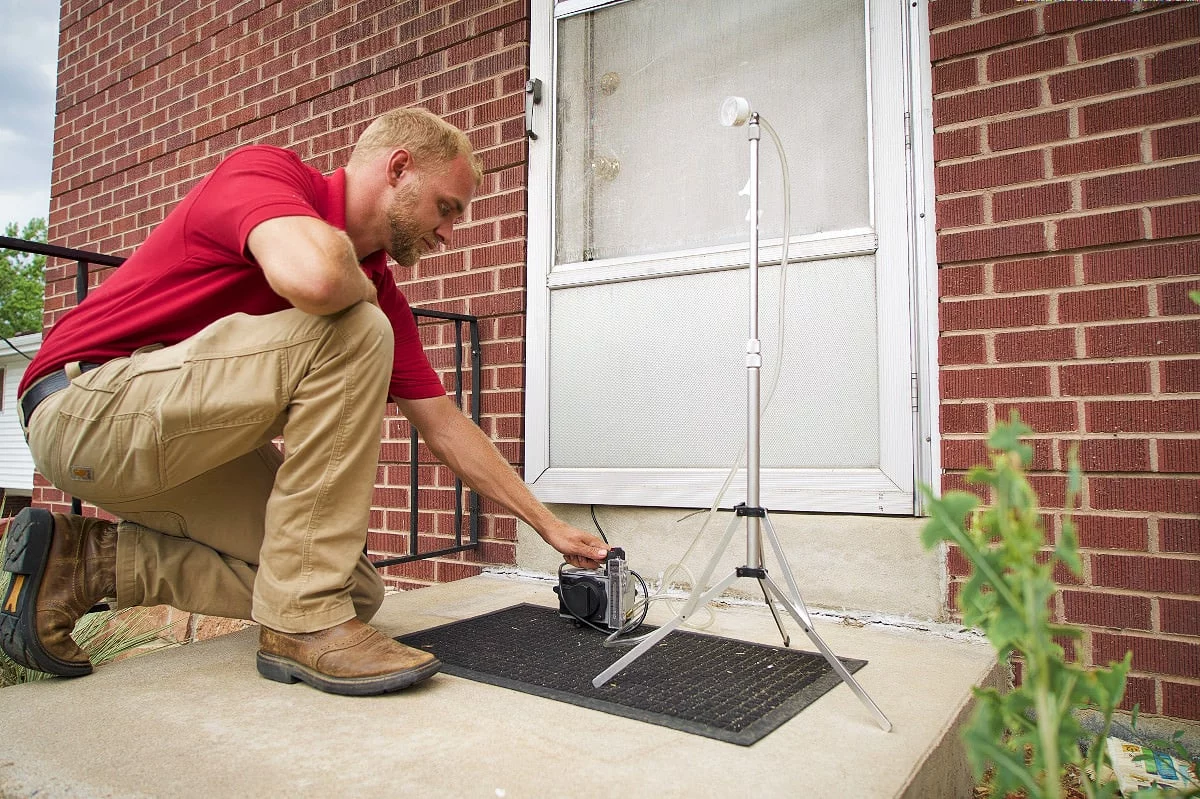
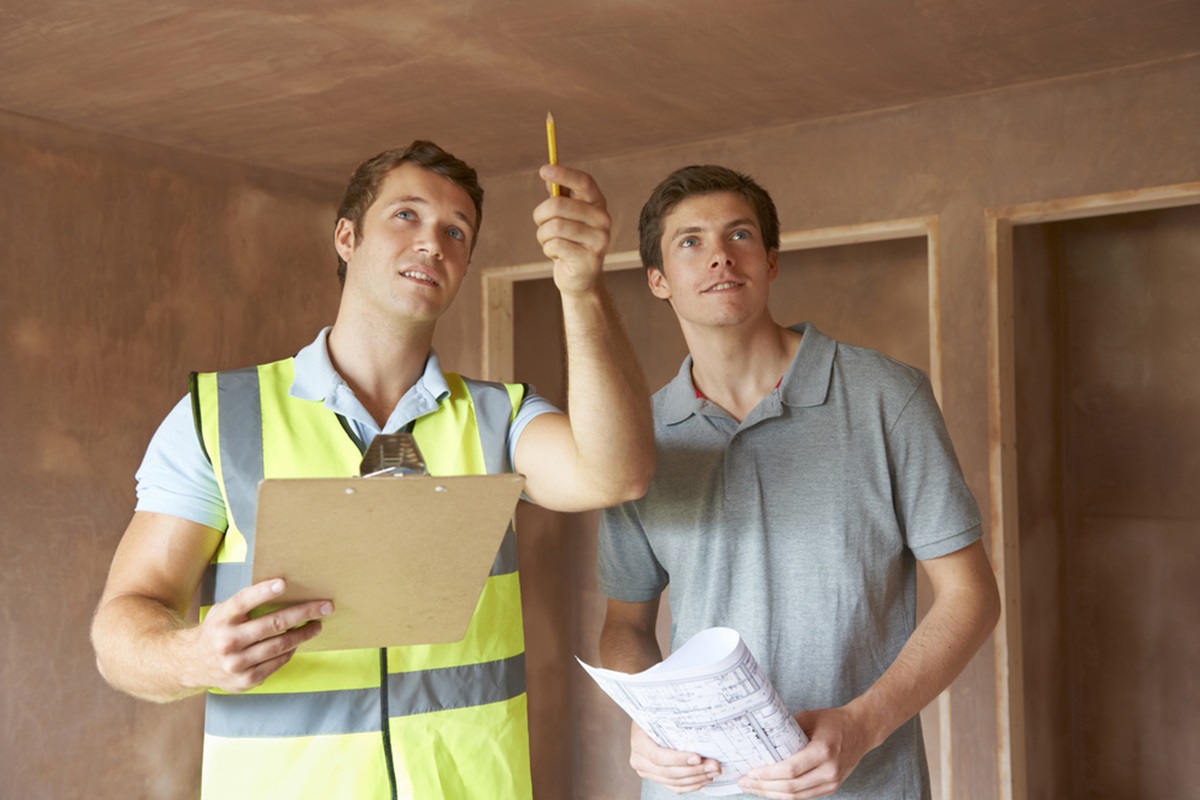
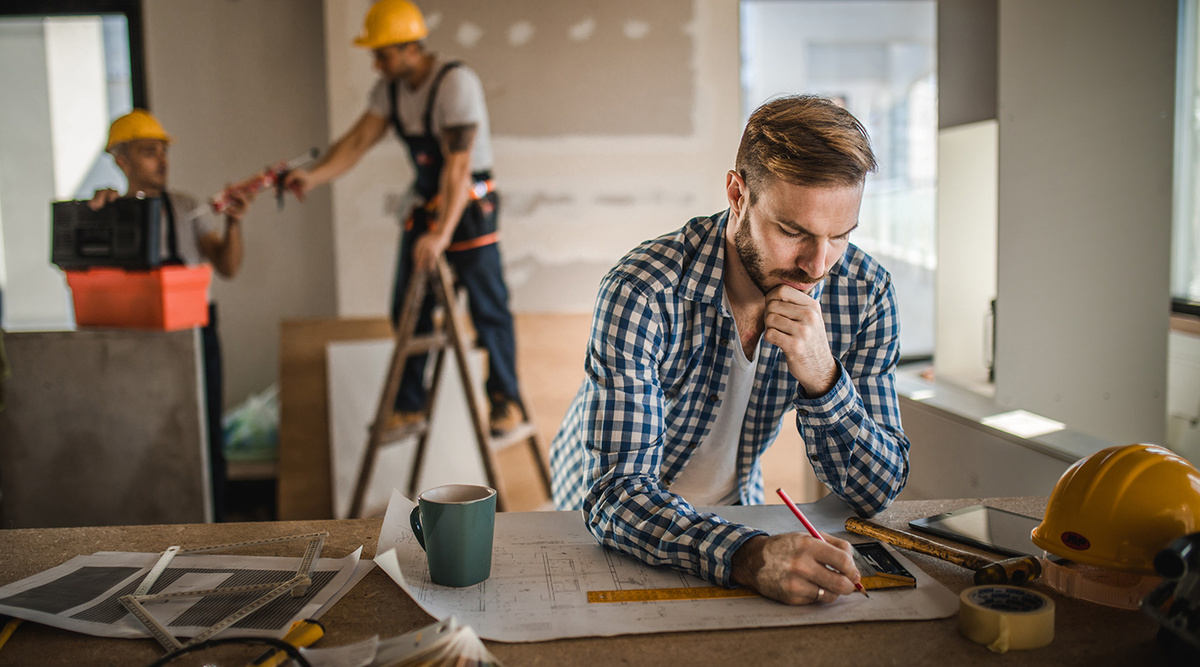
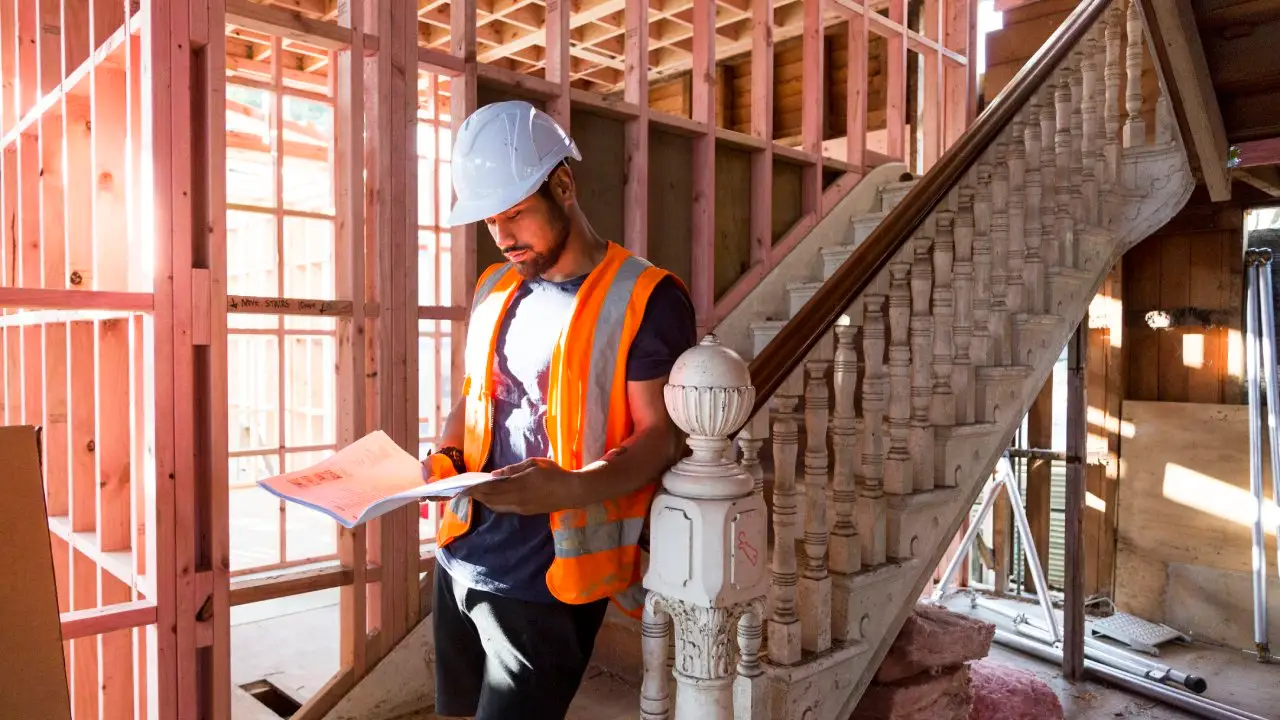
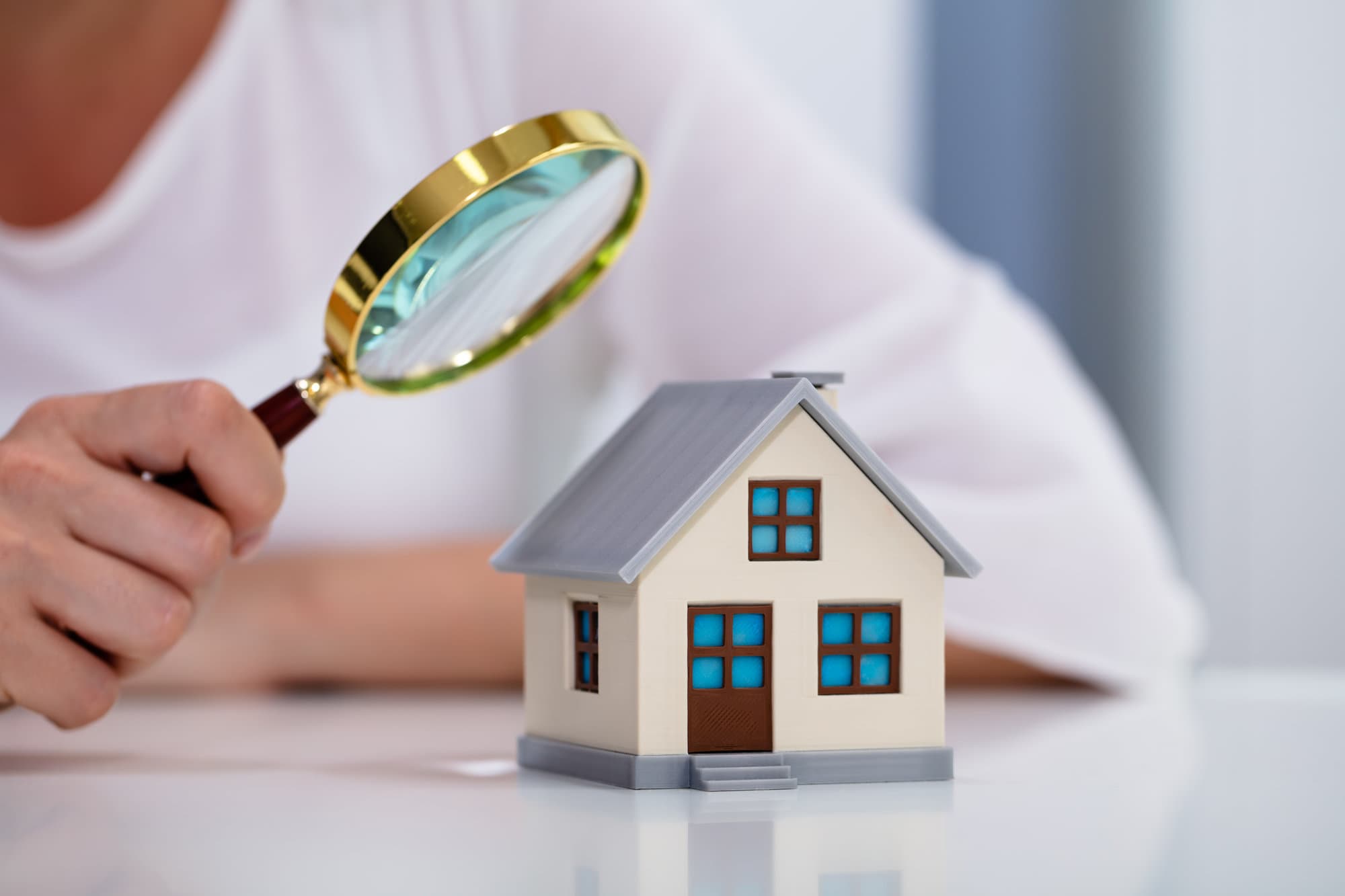
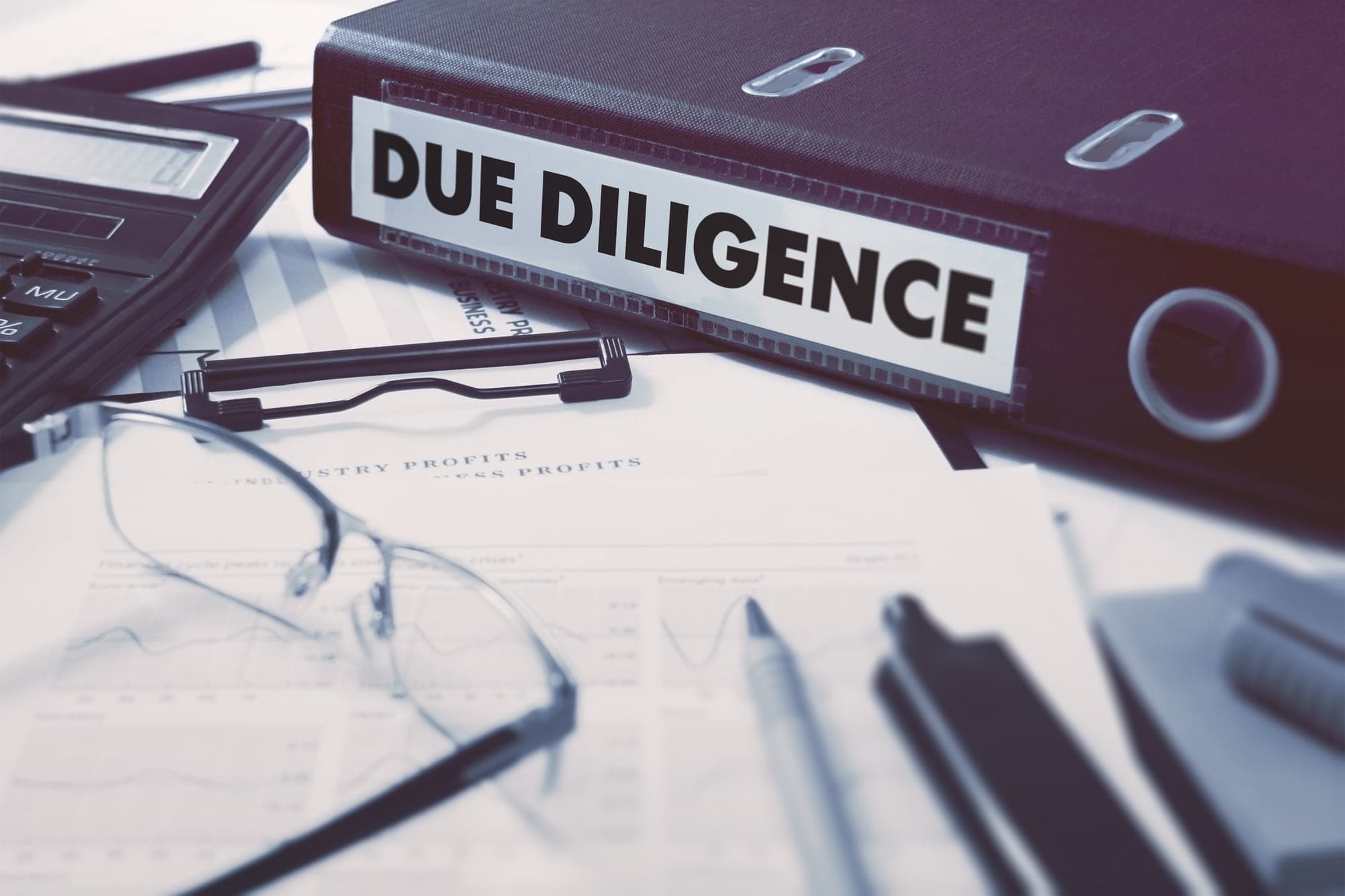
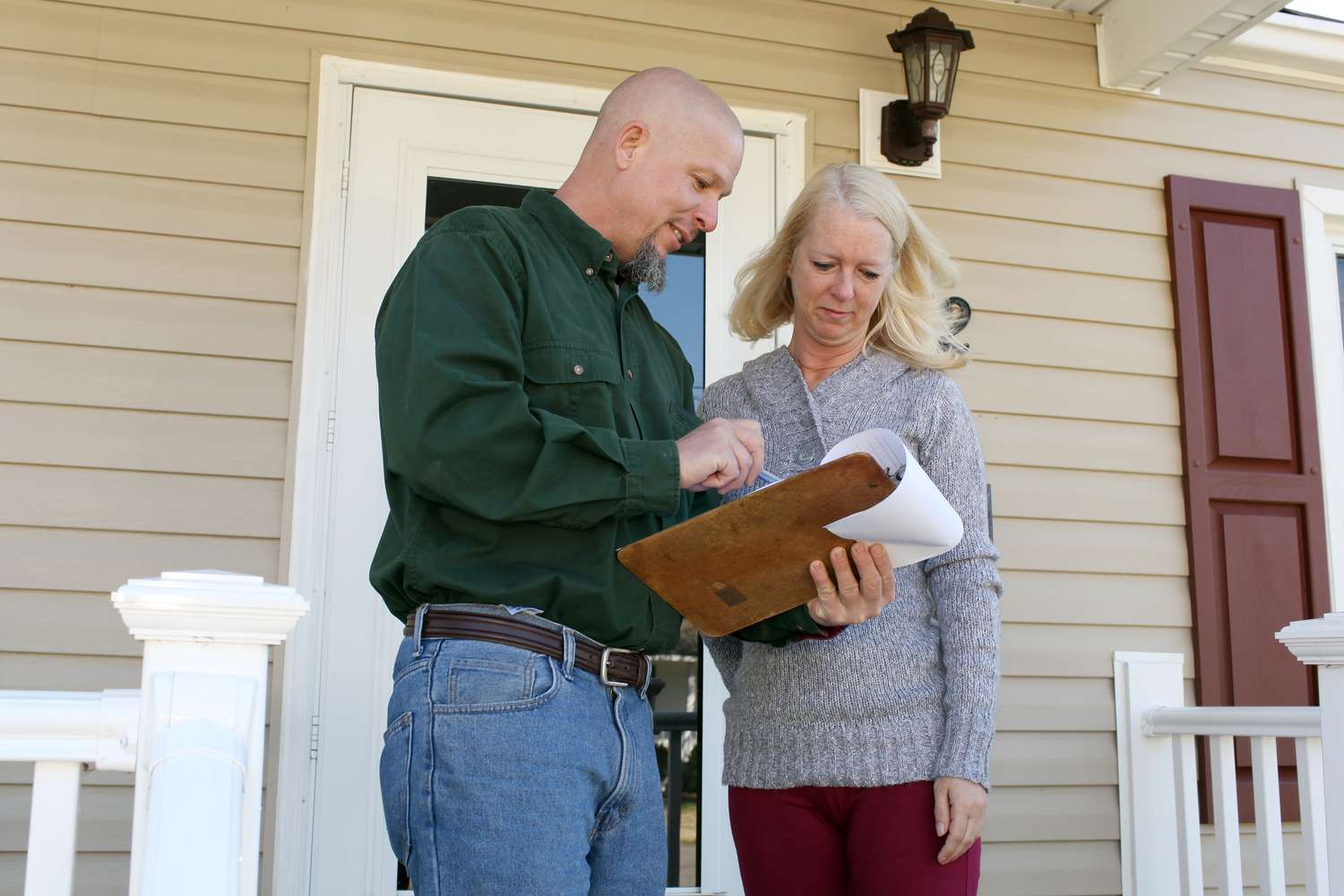
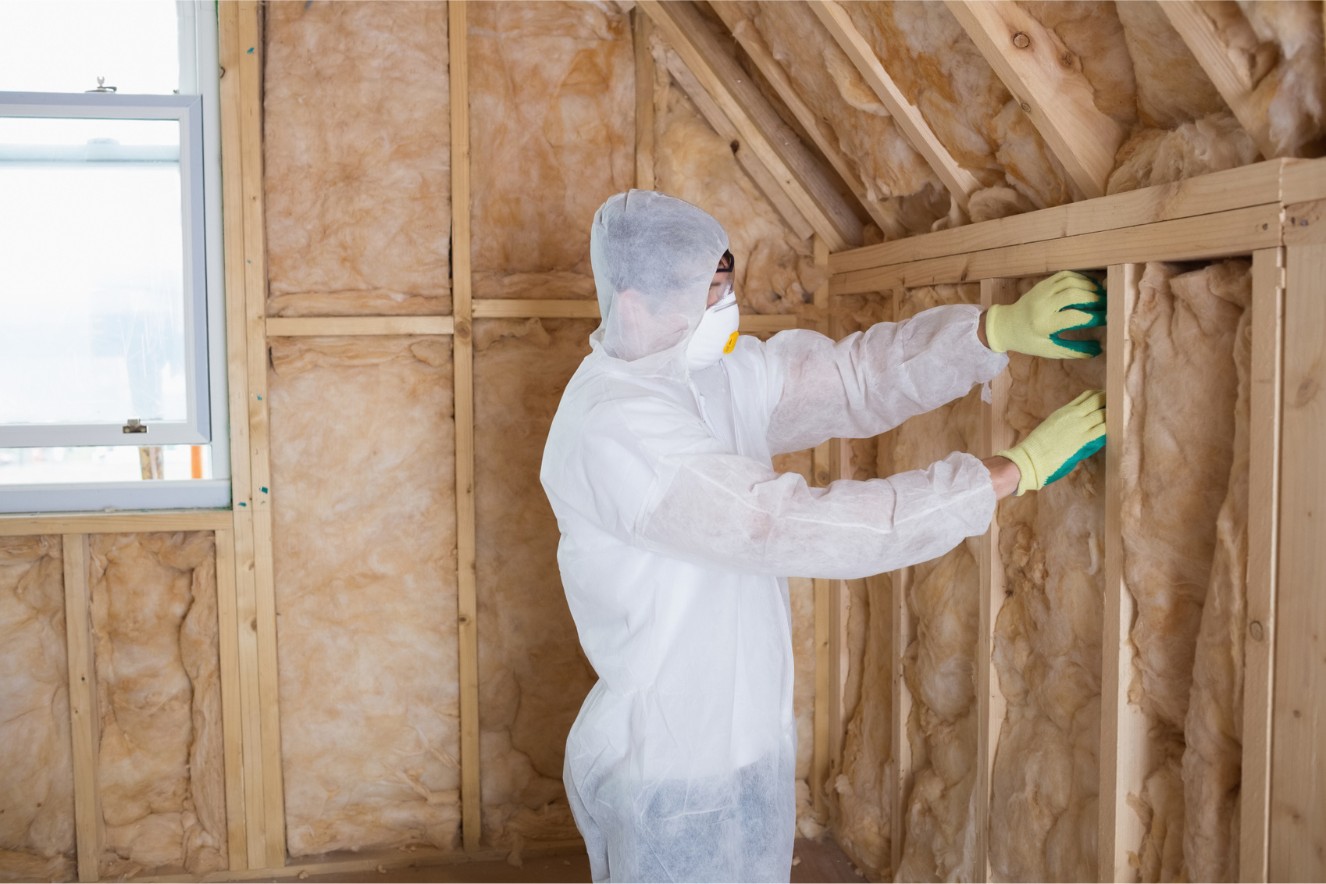
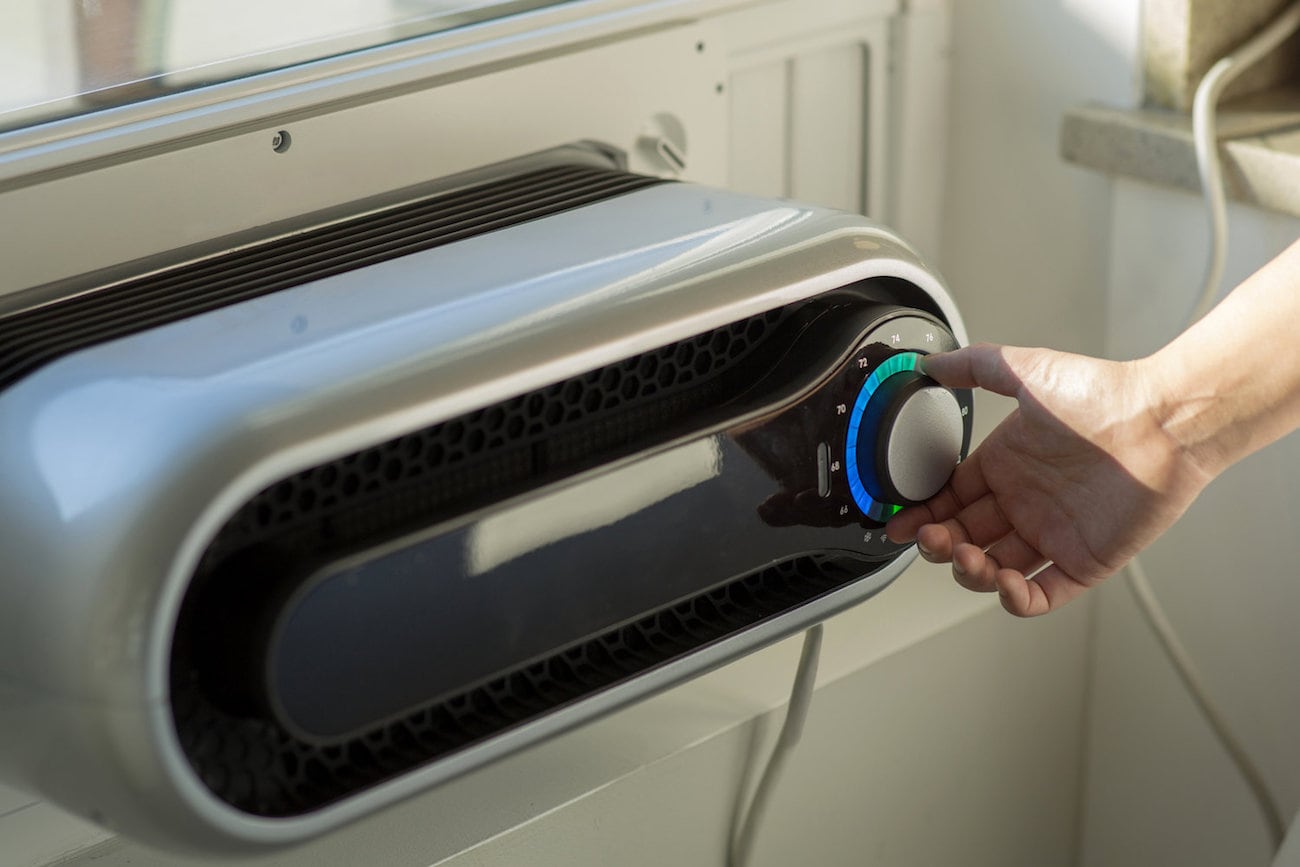
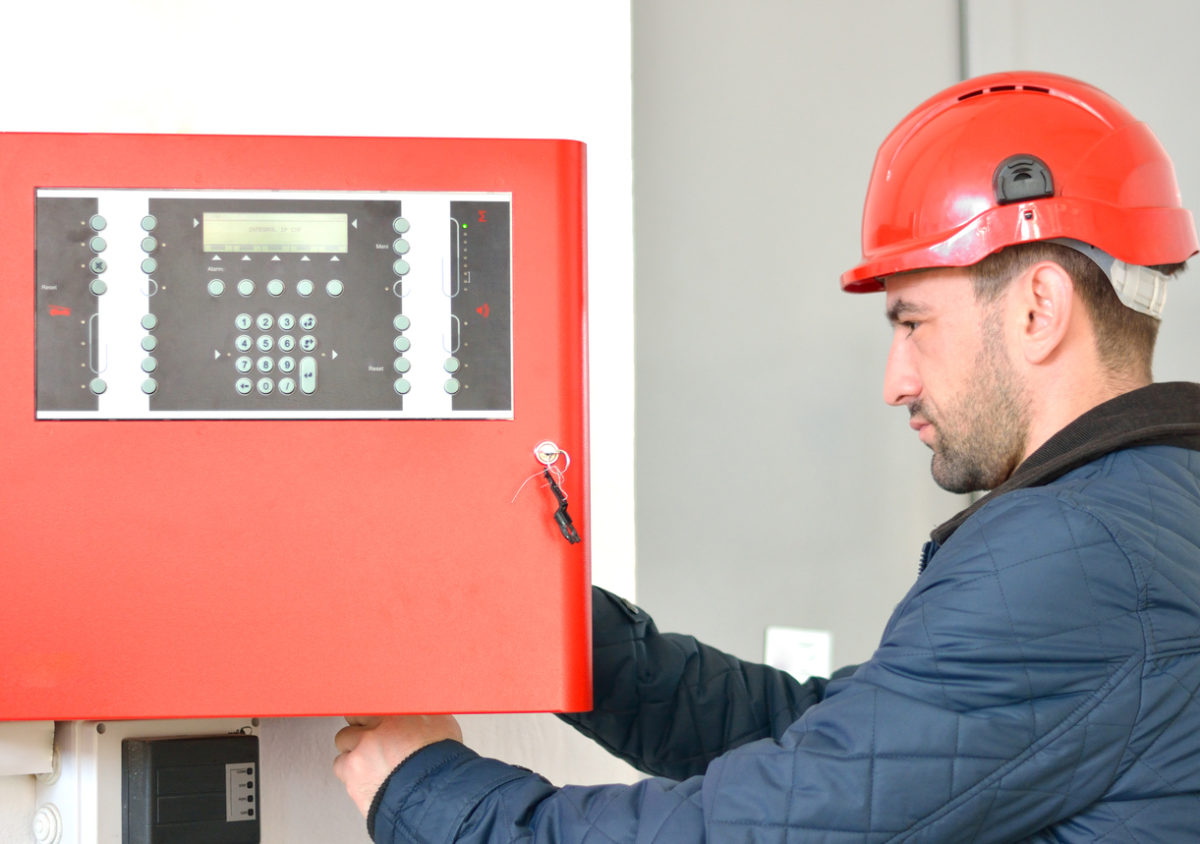
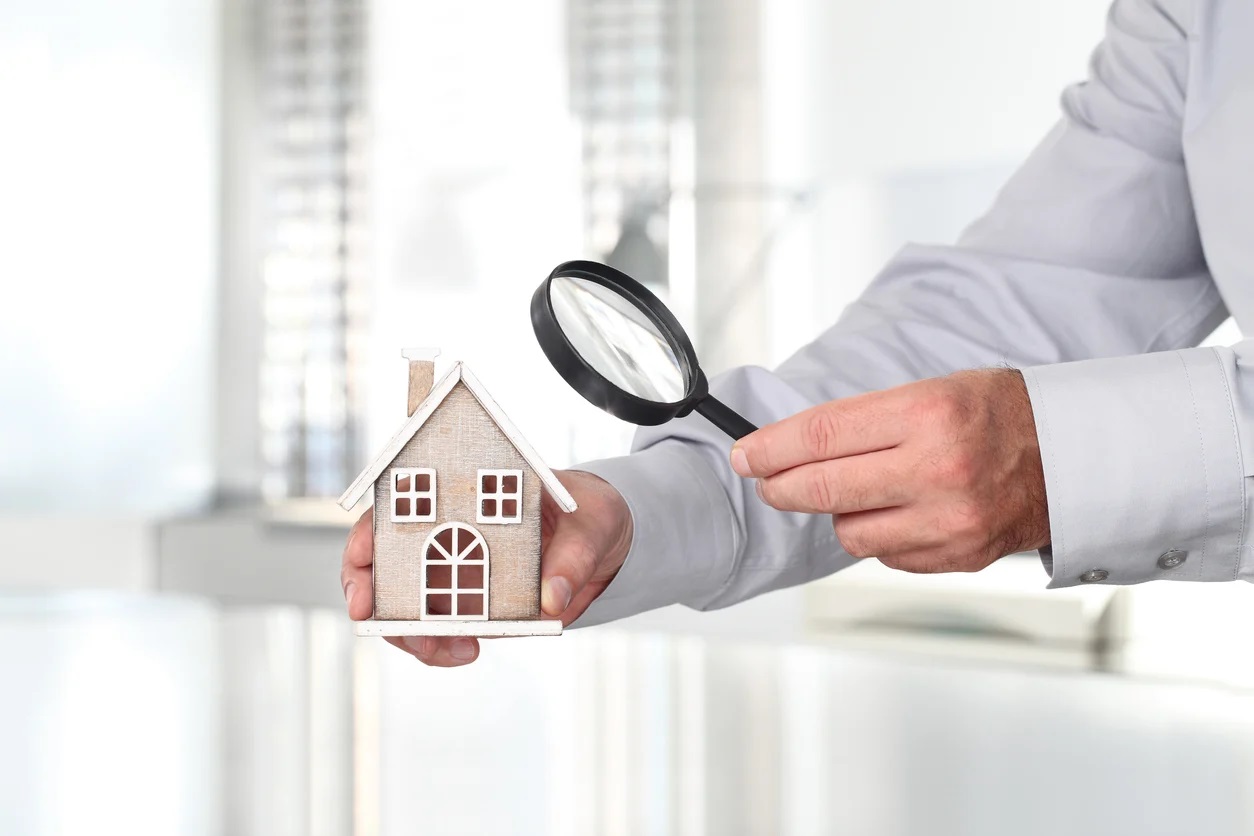


0 thoughts on “What Happens At Home Inspection”